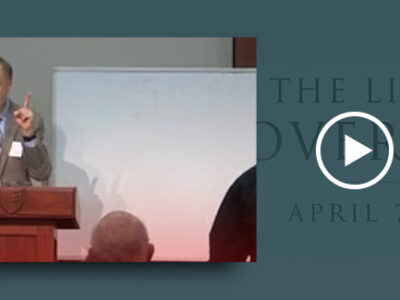No, I am not getting ready to join the ranks of those clever economists and financial prognosticators who periodically cop a book deal by peddling a hyped-up title that feeds our perverse appetite for scary scenarios—Financial Armageddon, Get Rich While All your Neighbors Go Broke, How To Prosper From the End of the World As We Know It. I’m sure I’m passing up a lucrative opportunity. In fact, given the jarring financial convulsions in recent months and the potential for further damage, the timing could hardly be better for the publication of financial doomsday books. They’ll be coming soon to a bookstore near you.
Are we embarking on our country’s second Great Depression? Possibly. There is way too much debt out there—debt that has resulted in the mispricing of key assets, such as houses—unproductive debt that must be dramatically reduced if future economic growth is to be vigorous. Most ominously, there are significant parallels to 1929.
The Great Depression started with the massive stock market crash of 1929. It was greatly aggravated by President Hoover’s panicky deficit spending, adoption of protectionist tariffs (Smoot-Hawley Act of 1930), and an enormous tax increase in 1932. Today, there is the potential for an even more devastating financial collapse—that of the trillions of dollars of essentially worthless derivatives that I wrote about on December 27 (“Anatomy of a Financial Crisis: Part I & Part II”). The current stimulus plan shows that both parties still believe that a flood of red ink in Washington is the proper response to economic downturns. Protectionist sentiment in Congress is riding high and opportunistic politicians are itchy to blame foreigners for our economic woes. If the Bush tax cuts are not made permanent, then their expiration in 2010 will result in a gargantuan tax increase.
Do these parallels mean that we are doomed to repeat the Great Depression? Not at all. It may or may not be possible for the king’s horses and all the king’s men to prevent a derivative-based financial debacle from occurring. If such an event happens, we will have to go through massive financial adjustments and considerable economic distress. However, a financial wipeout wouldn’t compel us to resort to protectionism, increase the tax burden, or have Uncle Sam go on another disruptive spending spree.
Even if we sadly repeat the blunders of the Hoover administration, they still wouldn’t be sufficient to sentence us to a 12-year depression like the one that spanned 1929-1941. That could only happen if we then went on to repeat Roosevelt’s many policies errors, too. There is nothing inevitable about another depression. We have a simple choice: We can repeat the errors of the past or we can avoid them.
The most important fact to understand about economic depressions is that they are not natural phenomena of market economies, but the product of repeated, ongoing government interference with markets. The defenders of FDR (who, though they will deny it, are also defenders of Hoover, because economic illiteracy is bipartisan and both presidents embarked on parallel paths of massive government interventions) claim that the Great Depression was caused by market failures. What nonsense! This is like blaming someone for dying if you shoot him. The tragedy of the 1930s is that markets weren’t allowed to work. First Hoover, then FDR, caused massive economic dislocations through repeated federal interventions. The Great Depression was a case of government failure (a distant cousin of the decades-long depression in the centrally planned Soviet economy), not market failure.
This is not to claim that free markets don’t experience bumps in the road. Markets bring supply into balance with demand through the language of prices. Any healthy, growing economy will have bankruptcies, shifting employment patterns, etc., but in a market economy, freely set prices quickly balance supply and demand. Even during our country’s pre-Great Depression periods of wrenching economic readjustments, the process generally was over in a year or two. Only government interference with markets can prolong the necessary corrective process and make it last 12 years. (Well, maybe an asteroid hitting the earth would rock us back on our heels for that long, too, but if you ask me whether the odds are greater for an asteroid to hit the earth or for government to screw up, I’ll bet on government. There’s something very persistent about human error.)
The main lesson we need to learn from the Great Depression is that government programs prolong rather than correct depressions. Government couldn’t spend our way out of economic problems in the 1930s, and it can’t do it today. The only way we will have another great depression is if we cling to the 1930s ideology of trusting government more than free markets for our economic well-being. It would be an unnecessary and entirely avoidable tragedy to make the same policy mistakes again. The good news is that, like Scrooge on Christmas Eve, we still have a chance to recognize our past mistakes, change our course, and spare ourselves a grim and unhappy fate.


